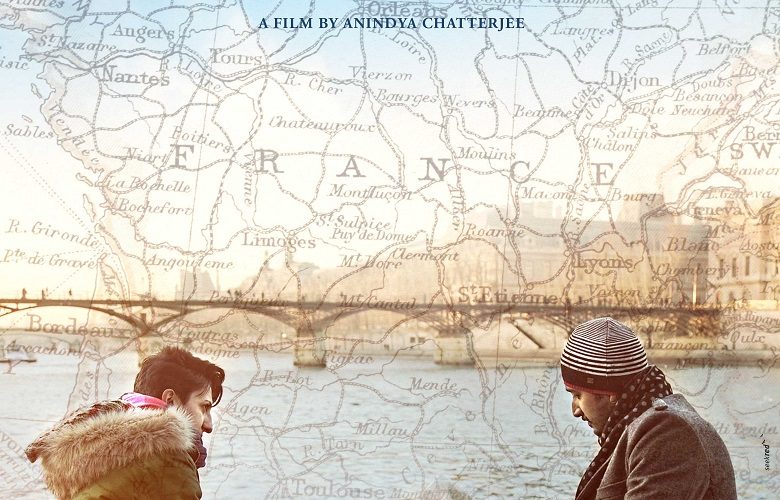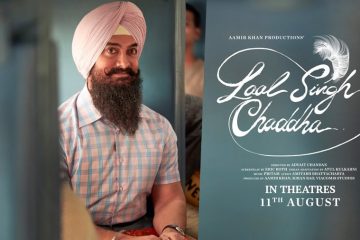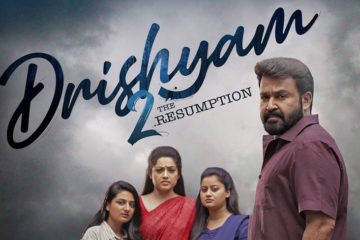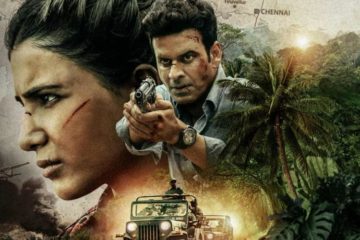Written by: Shreya Seth
Kolkata, India
Film Review: La Patrie- Homeland
Country: India-France
Director: Anindya Chatterjee
Cast: Parambrata Chatterjee, Ani Hovhannisyan
In 1972, when President Richard Nixon was seeking re-election in the United States, he was threatened by John Lennon’s growing popularity and influence, especially his stance against the Vietnam war. In March 1973, John Lennon received a deportation order from the administration citing an erstwhile case from 1968, where Lennon was convicted for possessing marijuana in England. A week after the deportation order, John Lennon and Yoko Ono held a press conference announcing the formation of a new conceptual country, ‘Nutopia’. The declaration read, “Citizenship of the country can be obtained by declaration of your awareness of Nutopia. Nutopia has no land, no boundaries [sic], no passports, only people. Nutopia has no laws other than cosmic. All people of Nutopia are ambassadors of the country.” While the deportation order was eventually reversed, allowing him to permanently reside in the United States, Lennon urged us to ‘Imagine’ the possibility of a world without countries, religion, and possessions, which also went on to become one of the most popular and memorable songs of his career. (Imagine, John Lennon and Yoko Ono: 1971)
Written and directed by Anindya Chatterjee, ‘La Patrie- Homeland’ comes to us at a time when the world is witnessing significant changes, be it the new immigration policies introduced by President Trump in the United States that are enabling a fast-track deportation process, the National Register of Citizens (NRC) in India which has affected the people of Assam and would eventually extend to the remaining country, or the Syrian Civil War that has not only displaced millions of people, but has also caused many of them to seek asylum in other countries.
The film ‘La Patrie- Homeland’, through its protagonist Ani, confronts us with a question we perhaps never bothered asking ourselves. Ani, an Armenian decides to travel to France in search of her roots because she feels an inexplicable connection to the place where her parents lived before her birth. Determined to visit Commercy, a commune in north-eastern France, she befriends a man named Jonathan over the internet who claims to know all about the places she sets out to discover. Eager to walk through the forests and sit by the rivers that run through Commercy, Ani keeps urging Jonathan to tell her stories of her homeland, and help her explore the places she’s only heard of but is yearning to visit. She feels betrayed when she realizes that Jonathan had been lying to her all along about his French roots and leaves for Paris, in search of an answer but with a growing sense of disillusionment. The film unfolds at a steady pace in the first half and almost thirty minutes of the one hour twelve minute narrative are consumed to establish the characters of Ani and Jonathan, one who believes that she can satiate her curiosity by visiting France, and the other who in his attempt to woo her, keeps her in the dark but is burdened with guilt.
When Ani travels to Paris, she runs into Victoria, a Spanish girl, and is intrigued by Ganga (essayed by Parambrata Chatterjee) when she learns that he is an Indian who has been living in Paris without a visa. In her attempt to locate Ganga, she thinks she might find a resolution to the situation she’s faced with. As she learns more about these people, she realizes that she isn’t the only one who is uncertain of what or where her ‘Homeland’ might be. There are many who seemed to have embraced their identities on the go- they belong everywhere and nowhere at the same time. While Ani’s character has been underplayed to a great extent, the film could have done more to express her disquietude than the mere repetition of her unpleasant encounter with Jonathan to almost every person she meets. The plot conveys an experience and unfolds a non-fictional account, presented as fiction, but it somehow lacks the intensity to keep one invested in Ani’s journey only. One is drawn more to Ganga’s story and the charming vulnerability of a man who knows no more about where he was yesterday and no less about where he is going to be tomorrow, he flows like a river like his name aptly suggests. The strength of this multilingual narrative, however, lies in its ability to hold not just one, but multiple stories that seemed to have crossed paths without disrupting the much-needed continuity.
The writing could have been better, the camera a little more steady, and the editing smoother, but that doesn’t take away from the essence of a heartfelt story with a small cast and crew, juggling between responsibilities and making ends meet with the resources available. One cannot help but feel grateful that independent films such as these are carving a niche for themselves and giving us stories that we relate to, and were perhaps previously dismissed because we failed to acknowledge the possibility of a magical potential in ideas such as these. With countries and cities becoming increasingly cosmopolitan,writer-director Anindya Chatterjee brings a sincere account that would resonate with many who may have been displaced, deported, abandoned, or simply chosen to wander-mistaking the entire world as a country without borders.




